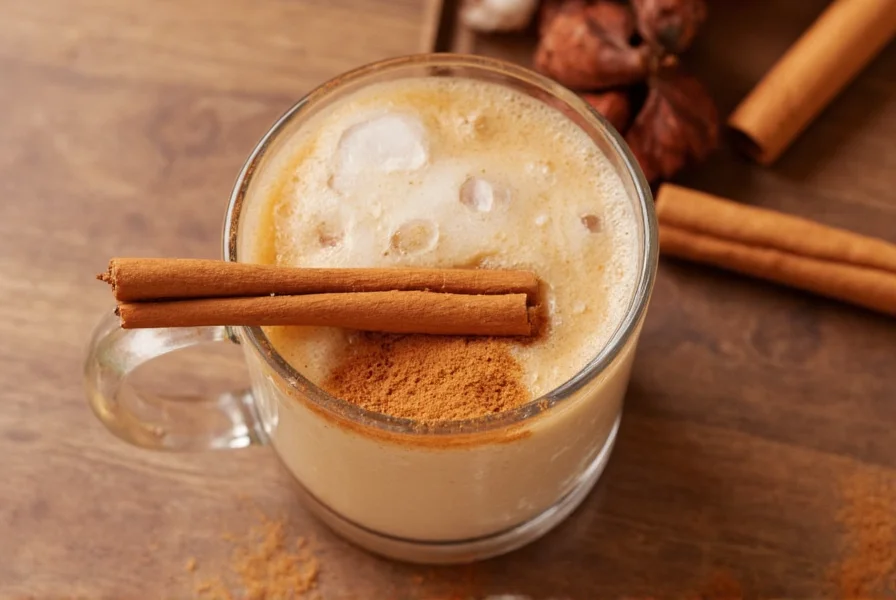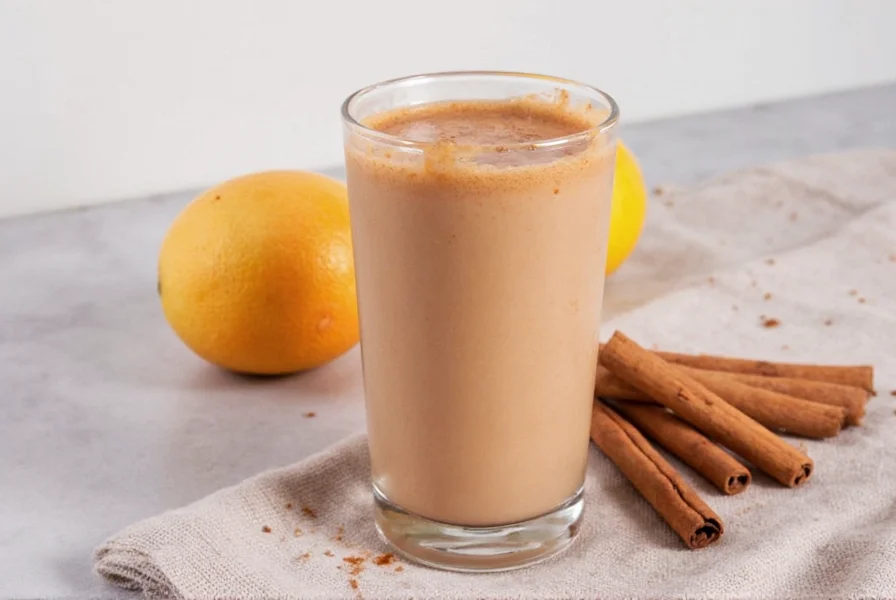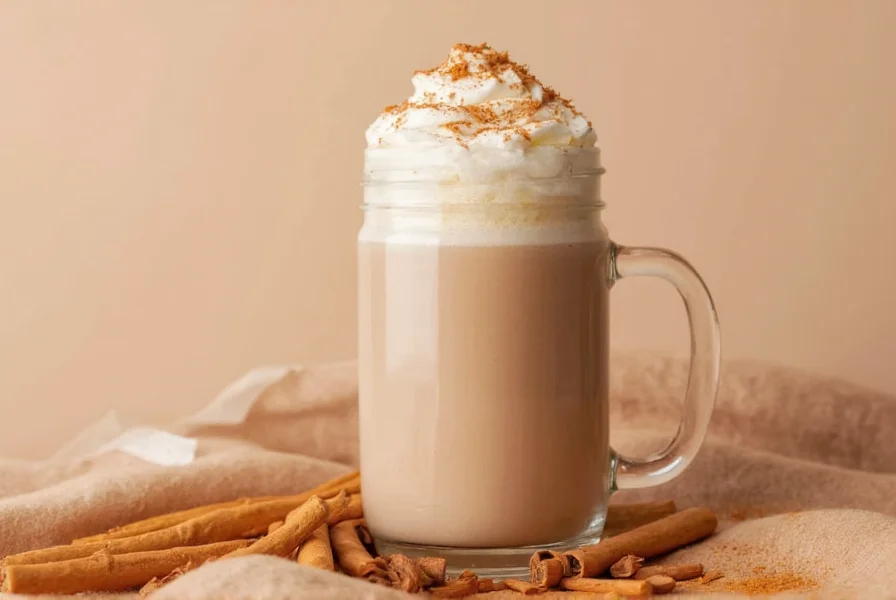Cinnamon drinks have gained popularity in wellness communities for their distinctive flavor and potential health properties. Unlike commercial beverages, homemade cinnamon drinks typically require minimal ingredients and preparation time. The most common varieties include cinnamon water, cinnamon tea, and golden milk—a turmeric-based beverage that often includes cinnamon as a key spice.
The Science Behind Cinnamon's Health Properties
Research published in the Journal of the Academy of Nutrition and Dietetics indicates that cinnamon contains cinnamaldehyde, the compound responsible for its distinctive flavor and aroma, which may support metabolic health. A systematic review of clinical trials found that cinnamon supplementation showed modest improvements in fasting blood glucose levels, though researchers emphasize that it should complement—not replace—standard diabetes management approaches.
When preparing cinnamon drinks for potential health benefits, understanding the difference between cinnamon varieties is crucial. The two primary types available commercially differ significantly in coumarin content—a compound that can affect liver health when consumed in excess.
| Cinnamon Type | Source | Coumarin Content | Best For Drinks |
|---|---|---|---|
| Ceylon Cinnamon | "True" cinnamon (Cinnamomum verum) | Low (0.04-0.14 mg/g) | Daily consumption, long-term use |
| Cassia Cinnamon | Common grocery store variety | High (2.1-5.6 mg/g) | Occasional use, flavor enhancement |
Three Simple Cinnamon Drink Recipes
Cinnamon Water for Morning Routine
This basic cinnamon water recipe makes an excellent morning beverage. Add one cinnamon stick (preferably Ceylon) to 16 ounces of boiling water. Let it steep for 10-15 minutes until the water takes on a light golden color. Remove the stick and allow the water to cool to drinking temperature. For best results when making cinnamon water for weight loss support, consume first thing in the morning before breakfast.
Classic Cinnamon Tea Preparation
How to make cinnamon tea that maximizes flavor and potential benefits: Combine one black or green tea bag with one cinnamon stick in a mug. Pour 8 ounces of just-boiled water over both ingredients. Steep for 3-5 minutes for green tea or 5-7 minutes for black tea. Remove both items and add a squeeze of fresh lemon if desired. This cinnamon and honey drink recipe variation substitutes honey for lemon but should be consumed in moderation due to sugar content.
Golden Milk with Cinnamon
This anti-inflammatory cinnamon beverage combines multiple wellness ingredients. Heat 1 cup of unsweetened almond milk (or your preferred milk) over medium heat. Whisk in ½ teaspoon turmeric, ¼ teaspoon cinnamon, a pinch of black pepper, and a small piece of fresh ginger. Simmer for 5 minutes without boiling. Strain and serve warm. The black pepper enhances curcumin absorption from the turmeric, creating a synergistic effect with the cinnamon.
Optimal Timing for Cinnamon Beverage Consumption
Research suggests that consuming cinnamon drinks before meals may help moderate post-meal blood sugar spikes. A study in the American Journal of Clinical Nutrition found that consuming cinnamon before a carbohydrate-rich meal reduced the glycemic response. For those exploring cinnamon drink before bed benefits, note that warm beverages generally promote relaxation, though specific research on cinnamon's sleep effects remains limited.
Safety Considerations and Recommended Intake
While cinnamon drinks offer potential benefits, moderation is essential. The European Food Safety Authority recommends limiting coumarin intake to 0.1 mg per kg of body weight daily. For a 150-pound person, this translates to approximately:
- 1-2 teaspoons of Cassia cinnamon
- 4-6 teaspoons of Ceylon cinnamon
Individuals with liver conditions or those taking medications should consult healthcare providers before making cinnamon drinks a regular part of their routine. Pregnant women should limit cinnamon consumption to culinary amounts found in typical recipes.
Maximizing Benefits of Your Cinnamon Drink
To enhance the effectiveness of your cinnamon beverage, consider these evidence-based tips:
- Use freshly cracked cinnamon sticks rather than pre-ground powder for maximum volatile oil retention
- Allow adequate steeping time (10-15 minutes) to extract beneficial compounds
- Pair with healthy fats (like coconut milk in golden milk) to improve absorption of fat-soluble compounds
- Avoid excessive sweeteners that counteract potential metabolic benefits
When preparing your natural cinnamon wellness drink, remember that consistency matters more than intensity. Daily moderate consumption provides more sustainable benefits than occasional large doses. The most effective cinnamon detox drink incorporates cinnamon as part of a balanced dietary pattern rather than as a standalone solution.

Creating your ideal cinnamon beverage involves balancing flavor preferences with health considerations. Whether you're making a simple cinnamon water recipe or a more complex spiced beverage, understanding the properties of your ingredients helps maximize both enjoyment and potential benefits. The growing body of research on cinnamon's bioactive compounds continues to inform how we might best incorporate this ancient spice into modern wellness routines.

What is the best type of cinnamon for daily drinks?
Ceylon cinnamon (often labeled 'true cinnamon') is preferable for daily consumption due to its significantly lower coumarin content compared to Cassia cinnamon. Ceylon contains only 0.04-0.14 mg/g of coumarin versus Cassia's 2.1-5.6 mg/g, making it safer for regular use.
How much cinnamon should I use in a drink?
For a standard 8-16 ounce beverage, use ½ to 1 teaspoon of ground cinnamon or one 2-3 inch cinnamon stick. Those using Cassia cinnamon should limit consumption to ½ teaspoon per day, while Ceylon cinnamon allows for up to 1-2 teaspoons daily without exceeding recommended coumarin limits.
When is the optimal time to drink cinnamon water?
Consuming cinnamon water first thing in the morning on an empty stomach may provide the most significant metabolic benefits, particularly for blood sugar regulation. Research suggests drinking it 15-20 minutes before meals can also help moderate post-meal glucose spikes.
Can cinnamon drinks help with weight management?
While cinnamon drinks alone won't cause weight loss, they can be a valuable component of a weight management plan. Replacing sugary beverages with cinnamon water reduces calorie intake, and some studies suggest cinnamon may support metabolic health. However, significant weight management requires comprehensive dietary and lifestyle changes.
How long should I steep cinnamon for maximum benefits?
For optimal extraction of beneficial compounds, steep cinnamon sticks in hot water for 10-15 minutes. Longer steeping times (up to 30 minutes) can increase extraction but may also release more coumarin from Cassia varieties. Ground cinnamon requires only 5-7 minutes of steeping time.











 浙公网安备
33010002000092号
浙公网安备
33010002000092号 浙B2-20120091-4
浙B2-20120091-4